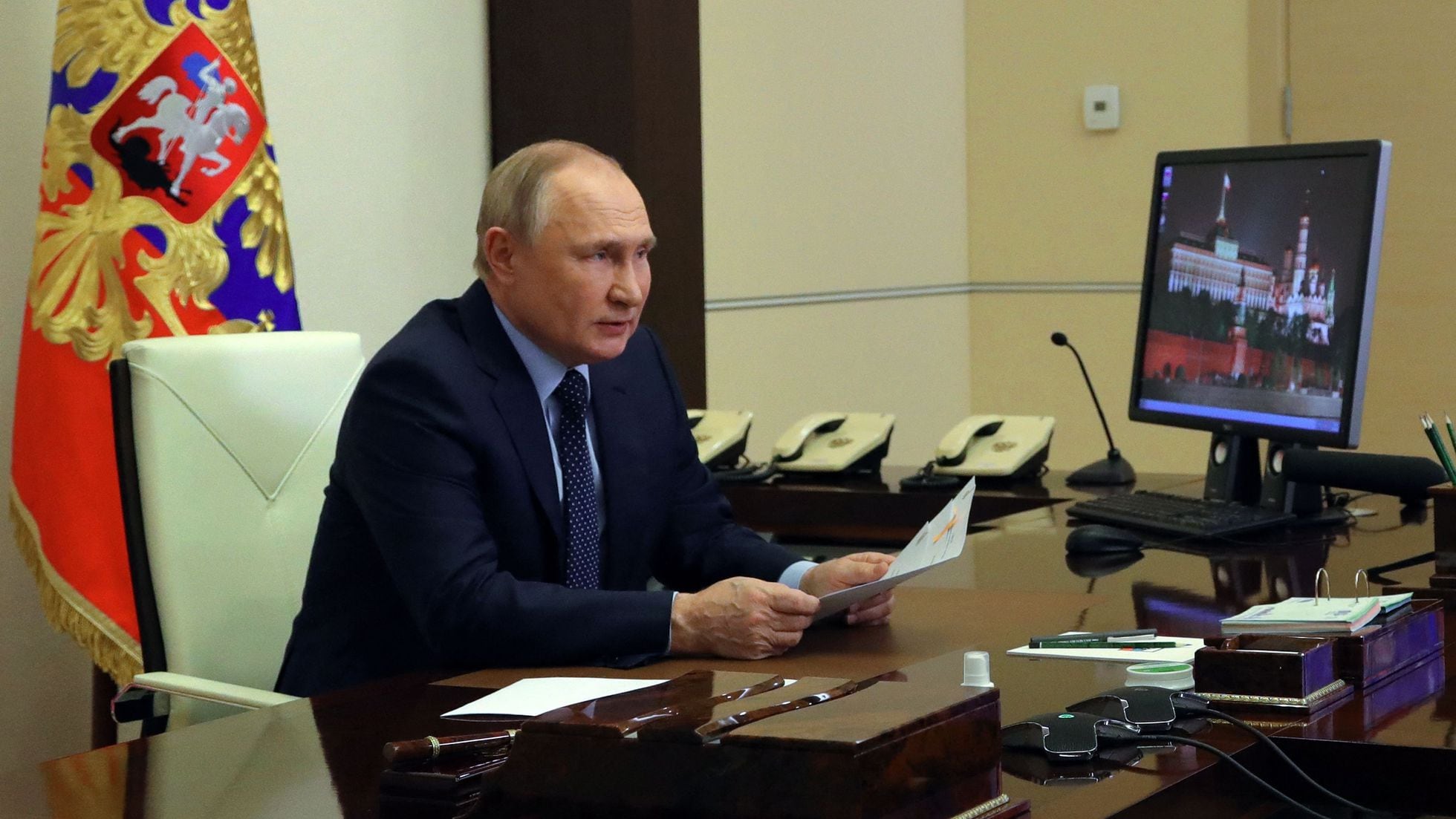Elvira Nabiúllina, president of the Central Bank of Russia, in a February 2020 image. Sefa Karacan (Getty Images)
The great architect of the Russian economy having withstood the first onslaught of the sanctions imposed by the war in Ukraine, the president of the Central Bank of Russia, Elvira Nabiúllina, warned on Monday before the deputies of the State Duma that the country's reserves end and the real crisis will come between the second and third quarters of this year.
Her warning, blunt as well as measured, word for word, in a rare critical opinion from a high-ranking official in recent months, was rejected by Vladimir Putin himself a few hours later.
“Russia has withstood unprecedented pressure.
The situation is stabilizing," the president said during a conference on the country's economic situation.
Nabiúllina stressed that the situation is far from normalized.
“The period in which the economy has been able to live on reserves is over.
Already in the second quarter or the beginning of the third we will enter a stage of structural transformation, "said the economist, whose mandate at the head of the monetary organization expired this year and will be extended for five more years by Putin's decision.
02:35
Putin takes stock of sanctions and their impact on the economy
In his opinion, the sanctions "affected the financial markets before, but from now on they will begin to harm more and more the sectors of the real economy."
The governor of the Central Bank of Russia pointed out that the problem is not in the financial system, but in the shortage of supplies that factories and companies will receive in the near future.
"The main problems will not be so much associated with sanctions on financial entities, as with restrictions on imports and, in the future, on exports of Russian products," she added.
In addition, the Russians will have to accept the loss of purchasing power because the monetary body will not try to compensate for inflation.
“We will not try to reduce it in any way because it would prevent companies from adapting.
Restoring the supply of imported components is now more difficult and costly, and that inevitably affects the price of the final product,” he explained.
This problem is now the big headache for many companies.
Some airlines have announced that they will ground part of their fleet to cannibalize parts and repair other planes, while the telecommunications sector estimates that it has spare parts until summer, when failures will start to occur, according to its calculations.
The official year-on-year inflation rate hovered around 20% in March, the first month of the war, and many companies have suspended their exports to Russia until the value of the ruble is clarified.
The Russian authorities estimated before the war that 80% of the critical sectors had exchanged their imports for national products, although experts put this percentage in Russia.
Nabiúllina also downplayed Russia's foreign currency fund in the face of crisis.
Of this cushion of around 620,000 million dollars (592,000 million euros), half of its endowment was frozen by the West and the rest has been used to protect the price of the ruble.
However, according to the banker, it is not enough.
"These are gold and yuan, which does not allow us to manage our currency in the domestic market in an operational way," she stressed.
The hypothetical buyers of the precious metal would face sanctions, and the Chinese currency is less liquid in the international market than the United States or the European due to Beijing's controls.
Deposit Boom
Nabiúllina's pessimism contrasted with Putin's victorious declarations shortly after.
“We can say with confidence that the policy against Russia has failed and the
blitzkrieg
has not been successful," he said, referring to the name Nazi Germany coined for blitzkrieg.
The president declared that the West "tried to quickly break up the economy and cause a panic in the stock markets, collapse the financial system and cause a great shortage of products in supermarkets."
According to his version, that fate was avoided thanks to the initiatives of the central bank.
"The exchange rate for the ruble has returned to levels of the first half of February thanks, objectively, to the strength of our balance of payments," he stressed before assuring that foreign currencies "are returning to the country's banking system and individual deposits are growing".
As soon as the sanctions were known, a few days after the war began, the body headed by Nabiúllina and the Russian government imposed a
minicorralito
on the movement of capital and raised the interest rate from 9.5% to 20%.
Among other restrictions, companies were forced to exchange 80% of their funds in dollars and euros for rubles, banks and exchange houses were prohibited from selling these currencies to citizens, and foreigners have been banned from undoing their positions. on the Moscow Stock Exchange.
The central bank now faces the delicate task of deactivating these measures in order to return to being a market economy.
The price of the Russian currency, which was exchanged at 160 rubles per euro, closed this Monday at 83, after the agency allowed banks to sell the few dollars and euros that have entered since April 9.




